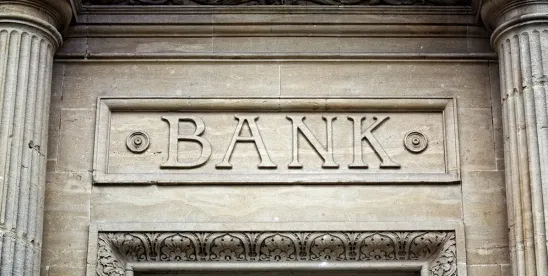The start of the second Trump administration is fast approaching, and it raises prospects of a renewed push for federal-level fair access to banking requirements. The first Trump administration came close to enacting such a regulation in its last weeks, but the rule was halted by the Biden administration. The financial services industry should not be surprised if congressional leaders and the Trump administration restart efforts on this front next year.
Background: Trump Administration’s Previous Attempt
In January of 2021, the Office of the Comptroller of the Currency (OCC) announced a final rule aimed at preventing financial institutions from denying services based on political or social views. Entitled “Fair Access to Financial Services,” it required any “covered bank” – i.e., any bank with over $100 billion in assets that is primarily regulated by the OCC – to make financial services available to all persons in its geographic area on “proportionally equal terms.” It forbade covered banks from denying services except on quantitative, impartial risk-based standards established in advance. In the introduction to the rule, the OCC referred to industries that had allegedly been denied service (or “de-banked”) due to controversy, such as abortion providers, private prisons, firearms, and factory farming.
However, only a few days after the transition to the Biden administration, the OCC paused publication of the rule. The pause prevented the rule from going into effect, and the OCC has not since revisited this area.
President-elect Trump has not yet announced any intention to nominate a new Comptroller of the Currency, which would require Senate approval. Any nominee would play a key role in deciding whether to resume implementation of the fair access rule.
During the Biden Administration: State-Level Fair Access Laws Took Center Stage
Following the OCC’s pause of the fair access rule, momentum on fair access to banking shifted to state legislatures.
Earlier this year, we covered the Florida law (Fla. Stat. § 655.0323) that took effect on July 1, 2024, which prohibits state and federal depository institutions from denying service based on customers’ religious or political beliefs and activities. Tennessee’s House Bill 2100, signed into law on April 22, 2024, contains similar prohibitions, but with a different scope: financial institutions with assets over $100 billion, including state and national banks, credit unions, and mortgage lenders, as well as insurers.
Several other states had similar legislation introduced but not passed this year. These included Arizona S.B. 1167, Georgia H.B. 1205, Idaho H. 669, Indiana S.B. 28, Iowa H.F. 2409, Kentucky H.B. 452, Louisiana H.B. 914, and South Dakota H.B. 1247.
OCC Pushback on State Laws
In response to the state laws, the OCC issued a letter on November 9, 2023, expressing concern that state regulations could hinder the ability of national banks and federal savings associations to operate efficiently. The OCC emphasized its commitment to preserving the preemption framework established by Congress, particularly under the Dodd-Frank Act. However, the OCC has not followed up with any action to declare preemption or otherwise block the laws.
Federal Legislative Efforts
During the Biden administration, congressional members also introduced legislation to codify the stalled OCC fair access regulation, but with limited progress. A bill entitled “the Fair Access to Banking Act” was proposed in 2021 and again in 2023. According to lead sponsors Sen. Kevin Cramer (R-ND) and Rep. Andy Barr (R-KY), the Fair Access to Banking Act is meant to prevent financial institutions from discriminating against legal businesses based on political or social pressures. Although the legislation did not progress to a vote in either chamber, support from the Republican side was significant – 37 senators co-sponsored the 2023 bill.
Discussion of fair access to banking issues has even percolated into mass media, perhaps most notably on a recent episode of the Joe Rogan Experience podcast where investor Marc Andreessen discussed “de-banking” at length. Given the Republican takeover of both chambers of Congress and the presidency, the chance of a federal fair access bill going into law will only increase next year.
***
Financial institutions should expect renewed activity on fair access to banking at the federal level next year from a Republican-controlled administration and Congress. State-level legislation may well continue to be introduced as well. Buckle up for more regulations, and stay tuned to our blog for coverage of this topic.




 />i
/>i
